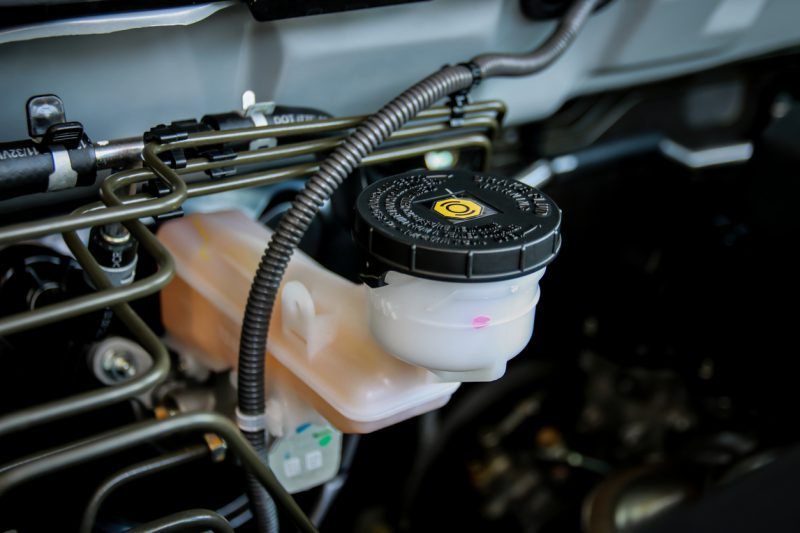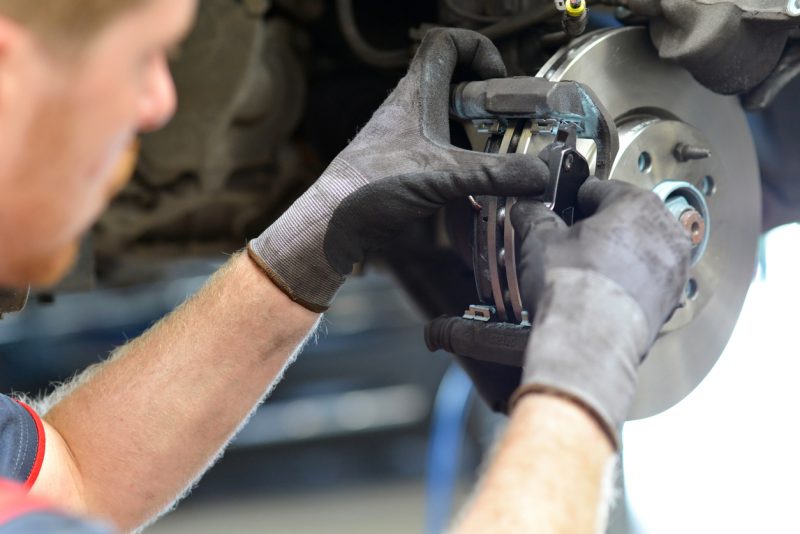
Some recent research reveals faulty brakes is the most common vehicle defect to end up causing an accident. The study of official figures by brake maker Pagid showed that dodgy brakes caused 15 deaths in 2018. In the last five years it says 64 deaths have been caused by brake trouble.
We should all check our brakes regularly and if you have any doubts about the system working properly, stop driving and have your car seen to by a professional. Here are some of the main symptoms of faulty brakes, what they mean in real terms, and what you should do about them.
Brake trouble: Soft pedal
Our connection with the brake system – the pedal – is one of the early indicators of brake trouble. If your brakes work but the pedal feels a bit spongy when you push it, it’s telling you something. There could be a variety of problems such as air in the system or degraded brake fluid.
The solution
First, check the reservoir beneath the bonnet. If this is low, there’s likely to be a leak somewhere. Brake systems are sealed units so air shouldn’t be able to get into them but sometimes it does. This can be through the master cylinder or a perished brake pipe. A professional will be able to diagnose exactly what the problem is.

Screeching and pulling
Brake calipers lead a hard life. They’re exposed year-round to moisture, salt, dust and dirt. Hardly surprisingly then, a common braking problem is when one or more calipers seize. This can cause the car to pull slightly to one side or even lock the brakes on completely, preventing the vehicle from being driven.
It can also result in a screeching sound and burning smell. The pad that’s seized in the on position wears down and you end up with metal rubbing against the metal disc.
The solution
Take the car to a professional. It’s not a hard job but it might prove expensive. Chances are the jammed-on caliper will have caused the pad to wear out and resulted in damage to the brake disc. And when you have new pads and discs fitted, it’s always advisable to have both sides done at the same time.
Hard brake pedal
If the brake pedal is difficult to press when you’re trying to slow the vehicle, it will more than likely be a problem with the brake servo. This is the part of the braking system that helps you push the pedal by using a vacuum. If there is trouble with the servo, the hydraulic side of the brakes will still work but it’ll need lot more effort to press the pedal.
The solution
Again, get the vehicle inspected by an expert. They will check the operation of the servo and associated parts. In the worst case it’ll need an new servo; in the best case it may be a split pipe not allowing vacuum to build up in the servo.

No resistance from the pedal
If the pedal goes to the floor with little or no resistance at all it’s because there’s a leak in the braking system. This is possibly from the master cylinder but it could be somewhere in the pipework.
The solution
Get it seen to by a professional. You don’t want to mess about when it’s to do with road safety.
How brakes work
When you push the brake pedal, it moves a piston within the brake master cylinder. This converts the mechanical force of you pushing the pedal into hydraulic force. In turn, this causes small pistons within the calipers to push the pads onto the discs and slow the car.
The bad news is a car’s braking system is complicated. It stretches pretty much around the entire footprint of the vehicle but can be split into two basic parts. There’s the hydraulic element of the system which goes from the pedal to the central master cylinder and then onto each wheel. And there’s the mechanism at each wheel which consists of calipers, pads and discs.
The good news is braking systems are designed to ensure that a total failure is very unlikely indeed. And that means instant brake failure without any warning at all is even less likely. Even so, it’s important to remain vigilant and take notice of any change in your car’s braking characteristics.

Scott Wilson is Green Flag’s vehicle and customer insight manager
Should I have the brake fluid changed in my car every 2 years ?
Thank you good advice.
I appreciate how the author breaks down complex brake problems into easily understandable concepts, empowering readers to better understand and address potential issues. The article’s clear and concise explanations, coupled with practical advice, make it an exceptional guide for anyone looking to ensure the safety and functionality of their vehicle’s braking system. Thank you, Green Flag, for providing such a positive and informative resource that truly stands out in the realm of automotive content.